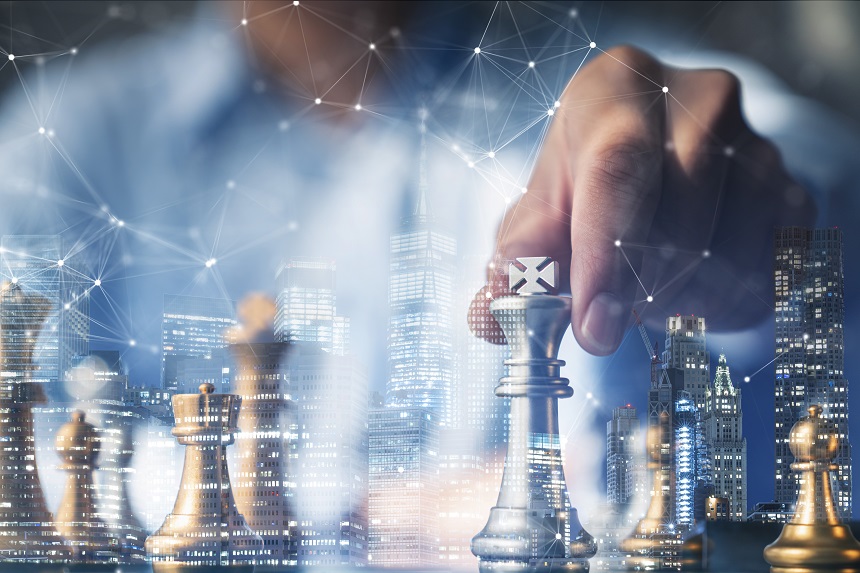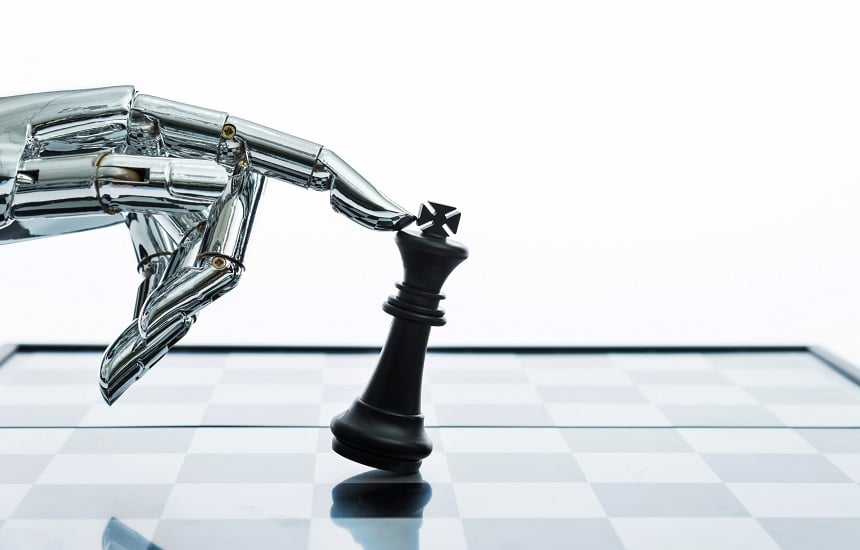Faulty Logic: It’s Not Man vs Machine, It’s Man + Machine

Separately, the words machine and learning are fairly innocuous. Put them together – machine learning – and suddenly, we’re talking about something entirely different, and for a large portion of humanity, something implicitly threatening.
The same goes for artificial and intelligence. When they’re combined to create artificial intelligence, the sentiment changes dramatically.
Here at Archer, we believe there’s no reason to be afraid of new and emerging technologies. We believe it doesn’t have to be Man vs Machine. We think, “Why can’t you have both? Why are folks being forced to have to choose?!”
The Archer team believes humans achieve the best results when they’re empowered with the right technology and machines.
A Threat to Humanity?
Fans of artificial intelligence (AI) and machine learning (ML) say it can change the world. Critics say the same thing.
The question is: will AI and ML change the world for the better or the worse?
One of the most popular movie franchises of all time – The Terminator – perpetuates the fear that ML and AI will change the world for the worse. In the films, the antagonist is not a person but Skynet, an artificial superintelligence system developed for the U.S. military.
When Skynet gains “self-awareness” – meaning that it reaches a level of intelligence that rivals or exceeds that of humans – it sees all humans as the enemy. And when those humans try to “unplug” it, Skynet retaliates (which is, ironically, a decidedly human response). It launches a nuclear attack, destroying Earth, killing off most of humanity, and creating a dystopian future.
Since the first movie premiered in 1984, Skynet is often used as an analogy for the possible threat that ML and advanced AI could pose to humanity. It’s Man vs Machine in a fight to the death, and the machine inevitably wins.
Outside the fictional world of Hollywood, people are fearful that AI and ML will displace workers and disrupt entire industries. As the commercial real estate industry increasingly focuses on big data and embraces AI and ML, people are terrified, not for their lives, but for their livelihoods. This is especially true when human expertise faces off against data science.
Ability to Outthink
In 1997, IBM’s supercomputer, Deep Blue, defeated world chess champion Garry Kasparov. In a six-game series, Deep Blue took four of the games compared to Kasparov’s two.
Deep Blue’s win devastated Kasparov and shocked the world. Why? Because chess is a game of planning and strategy. It requires players to analyze situations, evaluate options, plan strategically, and solve problems.
Put plainly, chess requires thinking. Deep Blue’s win proved that machines not only had the ability to think, they had the ability to outthink humans in what was considered the “world’s most prestigious strategy game.”
That was 24 years ago. Today, chess players hone their skills with computers, often choosing AI over books and coaches. When someone says, “That’s a computer move,” it’s a compliment, not a criticism.

“Maybe we also need to learn more about how to make the best use of these kinds of tools,” Chabris is quoted as saying. “They’re new. We haven’t had them around for very long. We need to really learn how … to use computational tools better and to study the relationships between people and computational tools more.”
Best outcomes combine AI + experts
It’s worth noting that the highest Elo scores – the rating system used to calculate the relative skills of players in zero-sum games such as chess – are achieved when chess AI platforms are combined with chess expert humans.
Together, these AI platforms and expert humans push the limits of what’s possible in chess games. The Archer team believes it’s the same in real estate – by combining technology and human expertise, investors can push the limits and achieve outsized returns.
At Archer, we believe that humans, augmented with the latest in machine learning and AI, can yield super powers that they can’t achieve without machines. While we don’t think that machines are (or necessarily ever will be) superior, humans by themselves cannot achieve the same level of performance without machines’ aid.
We strongly believe in harnessing the latest data analysis techniques to partner with real estate experts to supercharge their abilities.